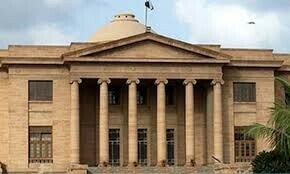
KARACHI: A book titled Pakistan Mein Media Ka Buhran (the media crisis in Pakistan) by Prof Dr Tauseef Ahmed Khan and Dr Irfan Aziz was launched at the Karachi Press Club (KPC) on Thursday evening.
Presiding over the event, distinguished journalist Husain Naqi said when India and Pakistan became independent countries their leaders did not think about what kind of governance system they wanted to have for their people. So they began to govern as per the 1935 Act and kept the colonial structure intact, the consequences of which are being witnessed to date because we haven’t yet realised that we’re an independent country.
On the book, he commented that the authors have included a poem by Fehmida Riaz in it whose last two lines are: tum apni kerni ker guzro/ jo ho ga dekha jaey ga (do whatever you want to do, we’ll see how things unfold); but Dr Tauseef isn’t that kind of a person. However, it seems that the current situation of journalism has even made Dr Tauseef lose patience. “Whatever has so far been written on the subject of journalism, the book will be included in it. But there is no mention of East Pakistan’s journalism in it… [Otherwise] it carries a wide range of time periods, that is, from the time Mohammad Husain Unqa who was put behind bars for 20 years and whose 17 publications had to be closed, up until now.”
Earlier, Pakistan Institute of Labour & Education Research (Piler) president Karamat Ali said the state and the government are not interested in democracy for the reason that we (people) are not united. “Unless we unite they won’t take us seriously. And for that to happen, all the workers need to gather on one platform.”
Book on crisis in media launched
Dr Jaffer Ahmed said the book not only refreshes our memory of the past when journalism was facing curbs but also highlights issues related to contemporary electronic and social media in detail. The marked feature of the book is that the authors have written today’s history now. Today the media has reached its most developed stage and yet freedom of expression and citizens’ right to information are issues that have become blurrier.
Dr Ahmed said the two writers in four chapters of the book have analysed almost all relevant areas of the subject. In the view of the authors, the media crisis in Pakistan is basically a reflection of the crisis of the state. From the time when the Greek held sway to the 21st century, states have tried to control the media. “Our [journalistic] history is the history of censorship, ban on newspapers and journals, imprisonment and punishment of journalists… whose only purpose is to create impediments in the way of a free flow of information. Today, the same is being done by remaining behind (aaj yehi kaam pas-e-purdah reh ker kiya jata hai), information is suppressed and journalists are picked.”
Retired Justice Fahim Ahmed Siddiqui said he used to interact with court reporters as his chamber would be open for journalists. If a certain thing was not on record or not meant to be published, it wouldn’t get published. Once, a senior journalist published a report about a decision which had not been taken. When he was made to realise his mistake, an apology was published. “The book tells us how many journalists were martyred.”
Mahnaz Rahman said the authors have made the readers see the background of the crisis. They worked hard on the book for three years. In the 200-year history of the subcontinent, not a single example of such a crisis is found. The facts mentioned in the book are eye-openers.
Dr Jabbar Khattak said the writers have touched upon issues which are usually not mentioned in books about the media.
Journalist Sohail Sangi said the government and unions are responsible for the crisis for not having seen the issue the way it needs to be seen.
Both the authors Prof Khan and Dr Aziz also spoke.
Published in Dawn, March 19th, 2022















































Dear visitor, the comments section is undergoing an overhaul and will return soon.